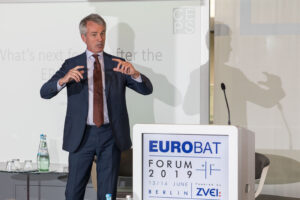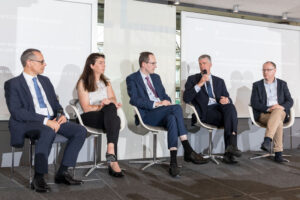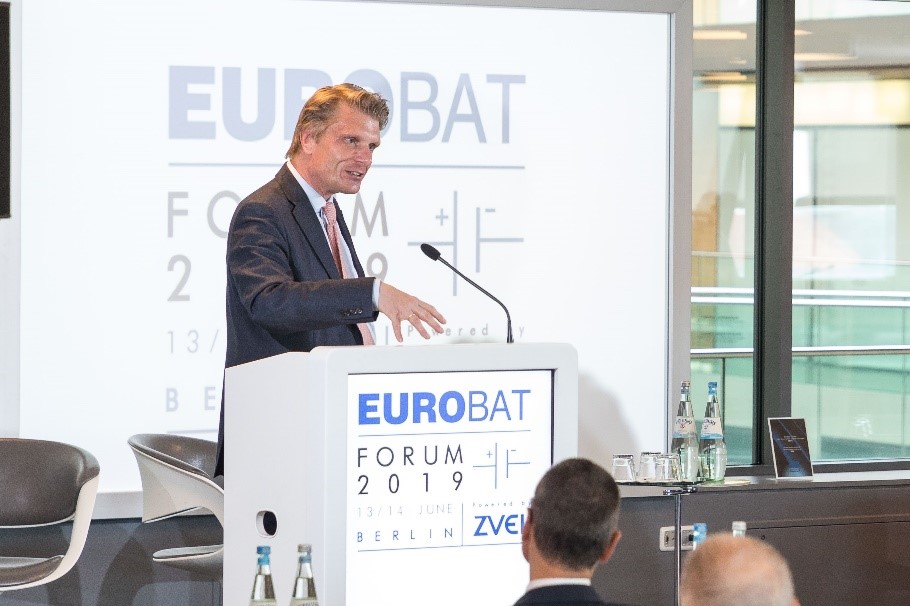EUROBAT FORUM 2019: decarbonisation, sustainability and EU elections results in the spotlight
U battery industry requests a coherent legislative framework
On 14 June, 110 guests attended in Berlin the 2019 Forum, organised by the Association of European Automotive and Industrial Battery Manufacturers (EUROBAT). The EUROBAT Forum is an annual event, taking alternatively place in Brussels and another European city, where topics and policies relevant for batteries are presented and debated. The Forum typically targets stakeholders such as policymakers, research institutes, analysts, NGO’s, energy storage companies and media.
This year the Forum programme consisted of the following sessions: decarbonisation of energy and mobility systems with batteries as key enabler; Europe after the elections and global macro-economic environment and sustainability of batteries. In his opening words, newly elected EUROBAT President Marc Zoellner, explained attendees why 2019 is such a crucial year for Europe, as well as for the EU battery industry. “We are facing today several challenges: international competition, legislative demands and the need to promote sustainable mobility and energy. And of course the EU elections just took place end of May, probably one of the most important ever”, he said.
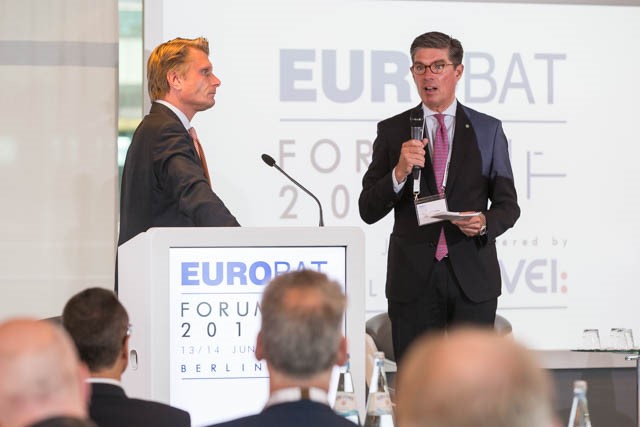 One of the highlights of the event was undoubtedly the keynote speech of Mr. Thomas Bareiss, Parliamentary State Secretary, German Federal Ministry for Economic Affairs and Energy, who spoke on battery cell production in Germany and Europe.
One of the highlights of the event was undoubtedly the keynote speech of Mr. Thomas Bareiss, Parliamentary State Secretary, German Federal Ministry for Economic Affairs and Energy, who spoke on battery cell production in Germany and Europe.
He started by giving an overview of the German energy demand and market. “Germany has to become a role model: today 40% of our energy comes from renewable sources, that figure will go up to 60% by 2030”, adding that energy has to be “affordable, safe and sustainable. Energy demand will increase hundredfold by 2040 and batteries – all technologies included - will have to follow if we want to make this transition happen”, he continued.
 In session 1, representatives of Clarios, VDA, BVES and NABU debated on how batteries contribute to the decarbonisation of energy and mobility systems. In terms of mobility, they agreed that various forms of electrification would be the only option, but charging infrastructure would need to follow accordingly. For energy storage, all emphasis should be put on renewables, linked to battery systems, which are key in making these systems more cost-efficient.
In session 1, representatives of Clarios, VDA, BVES and NABU debated on how batteries contribute to the decarbonisation of energy and mobility systems. In terms of mobility, they agreed that various forms of electrification would be the only option, but charging infrastructure would need to follow accordingly. For energy storage, all emphasis should be put on renewables, linked to battery systems, which are key in making these systems more cost-efficient.
Karl Lannoo, CEO from CEPS, the renowned think tank on EU policies, presented his analysis of the EU elections and what they mean for the battery industry and future legislative developments. “Given the major changes and challenges from the past 5 years, the previous EU Commission did better than generally perceived”, he said. “Europe got a huge legitimacy boost with a voting percentage of 51 versus 43 previously. Specifically for the battery industry, the election results seem to confirm that decarbonisation and circular economy will be even more top of mind during the next term.”
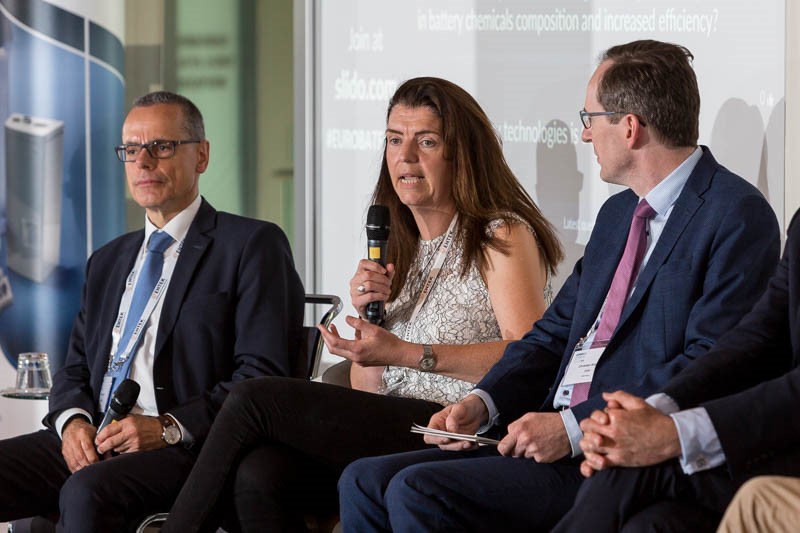 Speakers from ZVEI, European Commission (JRC), ILA and UMICORE discussed how sustainability and best practices can support the development of a strong EU battery industry. It was generally acknowledged that this can only be achieved by adopting a coherent legislative framework and relevant EU chemicals policy, supported by an even more efficient collecting and recycling system for all battery technologies.
Speakers from ZVEI, European Commission (JRC), ILA and UMICORE discussed how sustainability and best practices can support the development of a strong EU battery industry. It was generally acknowledged that this can only be achieved by adopting a coherent legislative framework and relevant EU chemicals policy, supported by an even more efficient collecting and recycling system for all battery technologies.
In his closing remarks, EUROBAT President, Marc Zoellner, summarised his key takeaways of the day as follows: “First, to me it is clear that the industry’s voice not only needs to be heard in Brussels, but also in the local member states. That is why e.g. we teamed up with our German partner-association ZVEI for the organisation of this Forum event. Second, different applications require different technologies and it does not make sense to focus only on one. Third, sustainability will be more than ever crucial, not only during production but also in the recycling phase.”

